Death Note: Light Yagami’s Transformation a Ruthless Killer
In the well-known anime, Death Note, Light Yagami goes through a drastic change from a hard working honors student with a high moral standard and a strong sense of justice into a ruthless murderer who will take innocent lives in order to achieve his own goals. This change starts when he picks up a death note, a notebook that, when a person’s name is written inside, that person dies in whatever manner the writer chooses. Deciding to punish criminals using the notebook, he takes on the name Kira as he changes, a name given to him by his supporters, derived from the English word killer. While Light progressively moves away from the justice that he claims to seek, there is a definite tipping point early in the first season where Light is shown to be irredeemably evil: when he kills Naomi Misora, an innocent former FBI agent, who has incriminating evidence against him. The evil standards for this article are intense immorality and a severe lack of empathy for other humans. In addition, evil connotes someone who does not care about the lives lost for their cause, but rather sees only the results or benefits from their deaths. From this point on Light’s actions speak far louder than his colorful words about justice or purging evil from the world. He murders innocent people as well as criminals, and gives no thought to killing off his closest supporters when it suits him.
Light’s Climb to Corruption
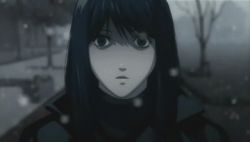
In the seventh episode of season one, titled “Overcast”, Light kills Naomi Misora, an intelligent former detective. However, he does not succeed at first, unknowing that she used an alias when she introduced herself. Light becomes flustered and agitated at careful Naomi; he even considers taking her down by force before he calms down. His obsession with winning a game rather than creating a just and moral world is made evident as he considers killing many innocent people even though his entire reason for killing is to rid the world of evil people who kill or commit crimes. He is juxtaposed by justice and lawlessness as he murders murderers, but when he starts killing innocent people in order to get his way, he becomes a criminal himself.
After Light smoothly cons Naomi into giving him her real name, by convincing her that he works for the task force that is searching for him, he turns into a taunting manipulator. When asked why he keeps checking his watch, he responds “It’s because I’m Kira”. Naomi’s look of horror in her last moments of consciousness connotes not only her fear of death, but the fact that her incriminating knowledge would be lost forever, and this terrible murderer may never be caught.
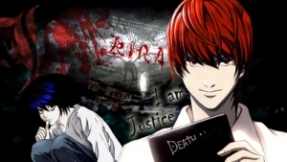
During the episode before Naomi’s murder, Light’s eyes and hair turn red as he plots her demise. This is the first time this art style is used in the series. Throughout the rest of the series, whenever Light is scheming as Kira, the background dims and he has a red filter put over him. In contrast, anyone who is plotting against Kira has a blue filter put over him or her. In Death Note, red and blue are symbolic of the fight between Kira and L–Kira’s sworn enemy, and the best detective in the world; during the time that Light loses his memories of the Death Note, he never turns red. When the filter is used, Light’s features also become more prominent and there is a greater contrast in the sharp angles of his face. He looks more severe, as a killer might, instead of the rounded baby-like face he has in the beginning. It is not to be dismissed that red is a color of lust and blood, connoting both Light’s lust for power and the blood that he has shed in his supposed search for justice. While the blue filter also sharpens the edges of the other character’s features, blue is more symbolic of calmness, as L is always calculating the movements of Kira and their possible outcomes when he is in blue. The filters add a new dimension to Death Note, putting the scheming characters into a new realm as they fight their battle of wits. The red filter adds an emotion driven and power hungry atmosphere, while the blue filter is calculating and precise. This is the decisive evidence that Light makes his transformation when he meets Naomi. Being the first time the filter is used, it is evident that it is no longer the search for justice that Light is working towards, but his own greedy hunger for power.
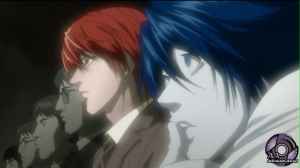
After Naomi is fully under the notebook’s control, Light taunts her possessed body as she walks towards her suicide. He sarcastically asks where she is going and if she still wants to call his father, the director of the task force, even though she can no longer do anything outside of the Death Note’s specifications. It is this childish mocking that leads to the conclusion that the protagonist has changed from a moral and law abiding citizen into a hypocritical murderer. He does not taunt her in order to win any sort of prize; he is being a sore winner, gloating about his success like a child. He is no longer concerned with keeping evil from the world. He is more interested in winning a game, where all the players are disposable pawns.
The Aftermath of Light’s Change
Warning: Spoilers ahead
Throughout the rest of the series Light goes on to directly and indirectly be responsible for the deaths of innocent people and even his own supporters. It is clear that he does not care about the lives of his subordinates. He sets up Misa for death (though Rem, a Shinigami, or god of death, saves her in the end), who has been a loyal supporter of Light and Kira since the beginning. He pretends to not know Mikami, who has been carrying out Light’s work while he was unable to move freely. He kills Takada, the public voice for Kira, when she gets kidnapped by man who wants Kira brought to justice, because he fears someone might find a piece of the death note. And Light doesn’t seem to mind laying waste to innocent people such as L or Soichiro Yagami, his own father. While not directly responsible, if it hadn’t been for Light’s greed for power, they would both be alive. Even at his father’s deathbed, Light is angered that his father didn’t kill Mello, and he begs Soichiro to tell him Mello’s real name, not caring that his father died trying to bring Kira to justice. In the case of L, Light set up a situation in which Misa’s life would be endangered so that Rem would feel obligated to kill L, who was to be responsible for Misa’s death. Not only did Light endanger Misa’s life, he also set the stage for L’s murder. His willingness to put others’ lives at risk is more characteristic of a Shinigami than a human.
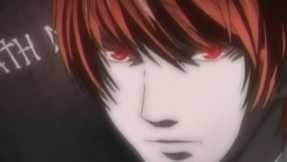
Light’s growth into a murderous person with a God complex that even Kira would want dead is a drastic change from the trembling honors student who felt guilty about killing people in the first episode. His metamorphosis accelerates exponentially after his murder of Naomi Misora, and marks the point of no return for his justice-seeking soul. His childish taunting combined with the artistic change in his character leads to the conclusion that it is the murder of Naomi that changes Light Yagami into a ruthless killer who’s only objective is to gain power by being “the God of this new world” as he told Ryuk in the very first episode.
What do you think? Leave a comment.




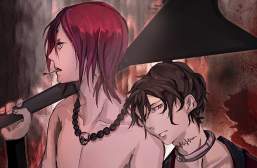

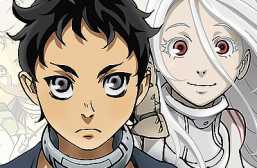

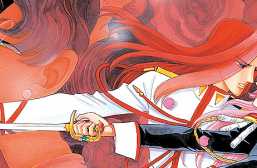

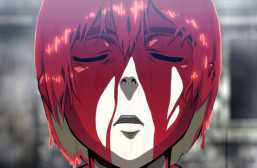
I think Death Note is excellent. I admire the one who wrote the story. Every episode was so suspenseful and intelligent. It made you think as a viewer as well, and not just watch, like every good crime story ideally should. This is one of the best series I’ve ever watched.
Was great until L died.. It became a little slow and boring after that, but still an amazing series.
I did go in to this anime with high expectations but was disappointed with what I saw to be a poor show.
I did enjoy Death Note a lot…I thought the premise was excellent, such a simple idea with so many large implementations but with details being so paramount. It got me very excited in the first few episodes with a great animation style, really interesting and fleshed out characters (this continued throughout) and a developed and realistic world in which it all takes place in.
So promising…
I’ll take a step back and say that for a movie/series to score great reviews it must be phenomenal in nearly all aspects. Character development, story, writing, animation, pacing, dialogue and tension/atmosphere/tone being at the core of this. Death Note failed at so many of these, leaving it well astray from the delusional great reviews it currently carries.
The story could have been excellent but the writing was some of the worst I’ve seen in an respected anime. The plot conveniences were overflowing with inconsistent character behavior that was often molded to fit the plot. The ‘twists’ were none existent as they were pulled from thin air and deductions that were beyond godlike, giving the writers freedom to tie together plots without any thought or difficulty. It is a show that gives the illusion of clever and complicated plots through an analytical style of dialogue but lacks any substance whatsoever. Young Teens will fall for this and ultimately it gives the show this same feeling.
I think the last section and ending were the biggest example of this lazy/convenient writing, with a pacing style that was all over the place and ludicrous story conveniences or complete removal from logical outcomes.
My second major issue I had was the character decisions and relationships. L was the best character in the entire show and they killed him off pathetically only to replace him immediately with the same character type who was far less interesting and likable. If the writing had been clever (like it tried to make us believe) they would have brought L back for a real twist and climatic showdown with Light in the end. (I realise the manga has already been written, but many quality anime shows have redone stories successfully…Death Note just cut instead of developed). They should have never got rid of L as he was the antithesis of Light and the relationship worked perfectly and dynamically. The whole story got undermined when he Light finally defeated his enemy ‘to begin his work’ only for a new one to pop up immediately and begin the whole process again.
Lastly, Ryuk was so interesting. It was his game after all. But the focus almost disappeared from him and the fascinating interactions between him and Light were non-existent at the end. He was one of the best parts of Death Note and they gave him nothing of substance after episode 15 or so. The writers were too lazy/poor to delve into anything of substance and this great character paid the price. Such a shame…
*SPOILERS*
It was definitely harder to get invested in the story once L died – and the new characters were not around long enough, nor were they different enough, to justify the decision. (It’s a testament to how good the show is at sucking you in that I kept watching.) But that may have been because I was rooting for Light. I didn’t like him, or agree with his “sense of justice” at all – which I found to be at odds with his explicitly psychopathic behaviour – but for whatever reason I still wanted him to win. Perhaps it’s the fantasy of the powerless becoming a god, or perhaps just the fact I got to know him first.
You could see the writers trying to salvage the manga’s bad idea of killing off L…”it’s really just a showdown between me and him” Light says towards the end, to make it seems as if the story were still heading towards a big confrontation, all plot arcs converging…except it isn’t really, and we know it. They dropped the ball and we just can’t care the way we used to.
There is also that BS about Near and Mello “surpassing” L because they “chose to work together” but that was a lazy and hand-wavey kind of explanation. It was cheesy, not played up as a big moral decision – and so (in my opinion) was less meaningful – and doesn’t even make any sense since L was never introduced as a foil to them in this way.
Ryuk, yeah, they couldn’t figure out what to do with him. So likeable (oddly) and interesting a character but when his original purpose had worn out they couldn’t find any new directions to take him in.
Another thing…Misa would never have agreed to give up the death note a second time. She might not have been the most intelligent character but was very sincere in her mission and would certainly never have wanted to sit back and become an “ordinary woman” or whatever the words said were. The only reason she ever did so the first time was to save her own life and Light’s. (Also the way Light suggests that he be taken into custody, halfway through the story, was not that convincing to me, though that may have been the fault of the translators).
But honestly, the cat and mouse game between L and Light, even if it feels a bit artificial at times (the writers, of course, had the luxury of knowing what the other was going to do next) was so entertaining I kept watching anyway. L’s death disappointed me, especially since they didn’t take the show in a very different direction, but I was helped by the fact I knew it was going to happen, and even the lesser third act and the character of Light were entertaining enough to keep me invested till the end. The ending itself I didn’t mind; I found it satisfying because it was so understated, that after world-spanning and supernatural intrigue the culprit would be taken down by a simple detective’s trick (Light himself would never have made that mistake, but it was not him who did so after all). Still, the fact that L wasn’t there to do it himself made it much, much less satisfying…
The show is brilliantly paced and famously addictive – I know many people both personally and online who watched it as a marathon, and against my expectations I was one of them. (It normally takes me a long time to get through books and series.) I think a person would be right to be disappointed by the opportunities it missed, but there is still a lot of great stuff in it. By itself it is a good, even a very good anime, but (in my opinion) just not a great one.
i thought the same about ryuk
It is one of the most cerebral shows ever, in both live action and anime. Amazing series. I watched it as a whole, so it was more like a really long movie. I don’t think I could have watched it by week. It is too much of a interlinked type of concept to enjoy without getting a little frustrated.
With that said, I honestly thought the whole story took a nosedive once Near and Mello are introduced into the story. The thing with L and Light, regardless of who you rooted for, it was a cat and mouse game to the next level. You appreciated it because it was so ridiculously claustrophobic how the detective and suspect is working next to each other despite them knowing and suspecting each other’s motives. But once it’s over, you feel a great relief. And from there, you believe the show is going to move into a different level of storytelling.
Unfortunately, that doesn’t happen. When Near and Mello are introduced, we quickly learn that they’re just L but on a lower level. So everything after that is just a retread. It was so disappointing to have to go through what we had just gone through the first 26 episodes, which was masterfully done. It was the same song and dance, but with a slightly different angle. So depressing.
And like a lot of people, I absolutely hated the ending. Even if you rooted against L, had he won, you would feel that he at least deserved to. But to see Near and to a smaller degree, Mello win, it felt so wrong. To have characters that are introduced in the last quarter of the series, and have them/Near get the better of Light felt so cheap and horrible. Hated it.
I wish it could have ended differently and it’s the only reason why I can’t really say I loved the story.
Agreed. I must say I never gotten so emotional during a cartoon before like when I saw L die. Just that whole episode had me feeling uneasy, especially when L was on the roof talking to Light about the bells being loud today, I knew what was coming. Once L died, I felt like a part of me died with it, I didn’t even know if I wanted to even watch the rest of the series. It literally affected more than certain deaths on Game of Thrones. At first, I was very excited with the intro to Near and Mello because I liked how L was smart enough to have a backup plan in case he died and plus there was hope that someone to stop Light and avenge L. But the more I watched them, my excitement just turned to apathy. I was rooting for them to win only because of my extreme hated for Light and Misa. They really didn’t feel like their own characters but rather just watered down versions of L. Also, despite wanting them to win, they didn’t fill that void that was created when L and Light’s cat and mouse game came to a dramatic end.
Regardless, this anime was amazing. Ending felt a little anticlimactic, but I really enjoyed this show. This was the first anime I ever watched outside of Pokemon back when I was younger. I discovered this show on just pure chance and though I thought the first episode was a tad bit rushed, I was hooked by the end of episode two and marathoned the whole series. I can’t describe this show as anything other than outstanding. Shame it came to an end, it was a great journey. After watching the entire series on youtube, I ended up buying the DVD set and manga books just so I could keep reliving the experience. I think I might try the live action films one day just to see how they are.
I completely agree. I was brought to tears when I saw L die. I understand why it was necessary for the plot of the show, because the only alternative was for Light and L to perpetually continue outsmarting each other. The game eventually had to have a winner. But the way Light befriended L and betrayed him just made the whole thing emotional for me. Many of Light’s other murders were so impersonal and distant, but this was a whole new level of evil.
I agree. After L died I feel like the show could’ve spent some time expanding on Kira’s reign, free of any challenge. It could’ve taken the show back to the beginning, when Light was just starting out and didn’t really have anyone or anything to stop him. Whatever force stepped in to challenge him could’ve been brought in a little later instead of just shoving N down our throats right away.
I really enjoyed your article. I haven’t watched Death Note in years, and now I want to watch the whole series all over again. I never thought about how much impact and symbolism the filters have, highlighting the juxtaposed motivations Light and L possess. Have you ever thought about how ironic Light’s first name is? At the very beginning of the show, he seems like a moral and upstanding character. But over time, as your article points out, darkness overtakes him. It is interesting that the writers chose to name him after the very opposite of what he represents.
Good analysis here. If I recalled correctly (it’s been a few years), Tsugumi Ohba attempted to justify Light’s cruel treatment of Misa by saying that he looks down upon her and sees her as “evil” because she kills people.
Likely that while Light believes himself to be righteous in how he kills, he sees Misa’s initial killings as senseless. And then there is how Misa displays such flippancy about wanting to kill. However, that still can’t justify Light’s own complex and his own hypocrisy. He was willing to kill Naomi just to get her out of the way so he wouldn’t be discovered. He quickly lost whatever sense of “superiority” he believed himself to have. And much as some readers may hate it, Near’s taunting of Light in the finale sums up the man’s hypocrisy and confronts him with it: That for as much of a God as he wanted to be, he was still nothing more than a cruel killer.
And in the end of the manga, Light is confronted by Ryuk and his own memories all too late- remembering that when all is said and done in life, humans are equal. Death is equal to all, and does not play favorites in honoring or punishing mankind. And for him, he winds up in misery, having failed to rise to become the “God” he wanted to be. He’s nothing more than a mere man, and one who caused so much pain and havoc.
You have an interesting point, but I have to disagree on one point: I think Light was always ruthless and cold-blooded.
In the beginning, we see Light as a high school student, supremely bored and without purpose. He is at first reluctant to use the Death Note, but I don’t believe it’s because he fears taking a life. I think it’s because he fears an eternity of limbo, which befalls any who utilize the Death Note. I think he’s careful and calculated; he won’t use the Death Note unless he as a plan, as evidence in his clever hidden-drawer mechanism to keep the Death Note, and his evolvement, safe.
On the surface, the audience is led to believe Light is an upstanding guy. He tells Ryuk he’s only killing criminals. He explains he’s working toward a better world, one without evildoers. He talks of the righteous hand of justice, but what’s key in this is the fact he thinks he himself has this ability to judge others. When his followers name him Kira, he slips the name over himself like a mantle and looks down upon his subjects from his self-appointmented, self-made throne.
Light thinks himself a god, and always has. I think a turning point does lie in the death of FBI agent Naomi Misora, but not within Light himself. I think it’s a turning point for the audience; prior to her death, we play into Light’s justice. We might find him a little unorthodox, but we can still believe he has a warped sense of justice. We can believe what his followers believe: he’s doing the extreme for the greater good. Then, when Naomi enters the picture, we see exactly how much Light cares about others: if they endanger his game, he will kill him. He will do whatever it takes to keep his seat of power, and he’ll do it without remorse because, from the very beginning, Light thinks he is better than everyone else. He is smarter, he is more charismatic. He is a god among men.
Light is like many sociopaths. He’s smart, he’s clever, and he’s calculated. He won’t take a risk unless he’s certain he’ll profit. He holds himself above others, thinks them lesser because he is smarter, faster, better. More importantly, he’s bored. He doesn’t take pleasure in existing, he doesn’t find school or work or home fulfilling. If Light had never found the Death Note, he probably would have become a ruthless CEO, a successful surgeon, or some other equally high-in-power profession. Light was always a killer, and the Death Note was an opportunity he couldn’t pass up.
I respect your analysis of Death Note’s story and characters here and think you make some good points; however, I do not think it is within the spirit of the show to break the conflict down into a simple battle between good and evil. While there are some good people on the Kira Task Force (that’s what it was called, right?), L, whom we agree is the undisputed leader and the antithesis of villain protagonist Light, is certainly not one of them. With his cold demeanor, quick readiness to employ torture, and manipulative nature, it is quite clear that he, like Light, is less interested in justice and more interested in “winning.” He just happens to be playing for the “right” side.
The conflict is thus less a battle between good and evil and more a battle between two petulant super-geniuses with differing ideas on what method best promotes justice. Light/Kira believes that law and order should be overtly forced upon the people, and indeed, we see that the world beneath his “rule” contains far less crime than the world we know, as those who step out of line are swiftly dealt with. L’s methods are simply less draconian, but no less cruel; it is quite clear that there is nothing he wouldn’t have done to catch Kira, and if it had come down to harming an innocent to get the job done, he wouldn’t have hesitated.
It is not my intention to defend the act of murder itself, but I do think it is unfair to paint Light as an individual completely lost to notions of power and control; he truly did believe until the end that he was making the world a better place, and the only innocents he killed are those whom he thought might prevent him from doing so. If he were truly “evil,” he would have just started killing anyone for any reason. Instead, he always stuck to people who committed crimes and people who would have stopped him from punishing the former. To use the parlance of TV Tropes, he is less a Card-Carrying Villain and more a Knight Templar/Well-Intentioned Extremist.
You also make good points in here. It’s interesting to point out how the Relight specials and later media try to paint L as a little more of a “hero” in his stance, even if he has very questionable morality.
If I recall correctly, the one-shot by Ohba and Obata written and released during the hype of “L Change the World”, L in a flashback states to children that he only solved cases because it would kill his boredom. That his answers disappointed those who looked up to him, except for Mello and Near, who had a certain intense look in their eyes at listening to his speech.
In the Relight 2 special, the scene is revamped to have L speak to the children about monsters, with his words reflecting Mello and Near’s own questionable ways (monsters who lie through their teeth, monsters who kidnap children and never show their face).
While Light’s god-complex and issues should not ignored in exploring his character, L is also not a clear-cut “hero”. If anything, he is dirty in his own way too. It’s what makes the challenge interesting.
I heard they were making a reanimation of Death Note pretty soon. If, this is true I hope that they handle Light’s transformation as deftly as they did before.
The change from Light to Kira is even more prominent in the manga because the way he is drawn changes. The lines get thinner, his eyes get smaller and his whole aura on the page is different. Then, when he loses his memories, the style changes to his innocent, pre-Kira depiction and back again when he becomes Kira once mroe. Great anime and manga and cool article.
You site Naomi’s death as a shift in Light’s character from a moral citizen to a hypocritical murderer, but I have trouble seeing any shift.
Light Yagami is commonly compared to what some consider his Western counterpart, Dexter, considering they both commit the serial murder of criminals. However Dexter follows a code, whereas Light does what ever he wants to do. This is why Dexter can be considered redeemable and supported as a protagonist, whereas Light is seen as insane. Still, the first rule in Dexter’s code is “Don’t Get Caught,” and it seems thats exactly what Light was justifying Naomi’s murder with.
To say there is a difference between the killings Kira did before Naomi and after seems far-fetched, since he had his victims do terrible things and created needless spectacles prior to this. Light might have only asked Naomi if she wanted to talk to his father to test the power of the Death Note.
So, I have to disagree. Light was a hypocritical murderer from the very beginning.
I disagree. There really is no shift of Light being a righteous murderer to a hypocritical murderer as a result of killing Naomi Misora.
The only shift that this writer pointed to that supports the argument is the artistic style of Light’s red filter and the blue filter of Light’s opposition. I don’t think this change is due to a change in Light’s character. In the episode more of Light’s childish, petty, manipulative, and evil traits are shown but they were already there since the beginning. The artistic lighting is used to signal when Light is in a problematic situation where the stakes are high and if he loses he will be found out/caught. This lighting also signals when we directly listen in on Light’s narrative in real time as opposed to earlier in the series the audience hears his narrative after a well concocted trap is successfully carried out or it’s something he already carefully considered such as when Light kills Lind L. Taylor or Raye Penber. In those cases we hear about Light explain it in a clever Sherlock Holmes like way to Ryuk, “I expected this…”
I cannot really say that I disagree. While I do not think that there was a shift in character, I will admit that Light’s character did become more extreme, more desperate. At first, Light talked to Ryuk about eliminating all the criminals in the world, already Light was turning psychotic with this goal. However, even though he was killing people with the Death Note to save this rotten world, he was still on the edge of morality and immorality. So far, the viewers could understand Light’s motives and maybe some even agreed with him. However, as the show progressed, Light started to slip away.
It is when he started killing the police officers and FBI agents that his motives were lost to the audience and he was no longer trying to be an anti-hero, this is when he became a villain. Light started killing innocent people because he believed that they were defying his will as God of the new world. An extreme, “if you are not with me you are against me” attitude. Killing Naomi was the real extreme, she was not even an officer on his case, but because she had outsmarted him and L by discovering a major break in the case that could have busted Light.
Light did not kill Naomi out of fear of being caught. He outsmarted L and avoided him at every turn throughout the show, even when L had discovered crucial information later. Many times up to this point and after, he boasted about how much smarter he was than L, so he should not have been worried about Naomi slipping a clue to L. Light Yagami killed Naomi out of bitterness and cruelty. He killed her in a temper tantrum, because he could’t handle someone being smarter than him and being able to see through his plan.
Even through out the rest of the show, Light shows growing desperation in not being found out. He lets his father die for him so he could kill Mello. Even when Mello kidnaps his sister, Sayu, he considers killing her with the Death Note so she won’t spill anything or be a bargaining chip to get the other Death Note. He would rather kill his sister, his own sister, than lose the Death Note.
He doesn’t shift his character in the course of the show, but his character does escalate from bad to worse.
Do you think there’s a significant line that can be drawn between Kira and intelligence? I mean, naturally Kira is extremely intelligent, but I feel as though his fall was primarily because he was blinded by his own ambition and greed. Rather than thinking calmly and collectively as he did in his early years, he got careless, blinded by his own hubris if you will. I guess what I’m asking is, do you think Light would have been successful in capturing Kira if someone else, with the same level of intelligence (and inevitable corruption), got ahold of the Death Note?
I like the article. There’s another article on here that compares Light to Faust and I think yours compliments it very nicely =]
Death Note was one of the first Animes I ever became interested in, L was by far my favourite character so I struggled to watch it after his death. Light’s ‘turning point’ IMO was definitely when he killed Naomi, it was perhaps the darkest part of the whole series, showing his trangression into becoming a ruthless killer.
Until the very end of the series (when Light becomes a whiny little brat as his plans fall apart), I would still say that Light was a somewhat likable hero. Yes, he killed innocent people as much as he did criminals, and he was very vindictive and petty when he dealt with some. But it was still hard to forget the reason why he was doing everything that he did. Was it the best reason? No. Did one person deserve that much power? Absolutely not. Should a single person go around killing everyone that he or she thinks is terrible? 1000% no. And yet he still wasn’t wrong in his initial premise. The world is becoming more and more f***ed up, and it’s only a matter of time before someone or some entity has to take a stand against the injustice that’s perpetrated by those who have fallen. Of course, that’s what we have a government and laws for, so let’s leave changing the world to where it can actually be done.
Death Note will always be one of my favorite shows. I’ve yet to encounter another anime like it.
Even though Light become a ruthless murderer, this anime’s constant look at education being prime, made me strive to do better in my high school years.
No matter where I go on the Internet, the topic of Death Note somehow never fails to pop up on a blog article of some sort. I enjoyed both the manga and anime, Death Note, but I have always wondered about Light. He was a rather peculiar character who, throughout the series, transformed from a normal guy to a killer. He got a taste of power, grew greedy, and decided to eliminate anyone, innocent or criminal, who got in his way. His lack of remorse only proved that he had gone off the deep end in his search for power.
Light was always terrible, morally speaking. There isn’t any shift at all. He murdered people willingly and justified it to himself that it was okay because they were ‘criminals who deserved it.’ Then it became ‘People who got in the way of justice.’ Then suddenly, he thought himself a God, and thus all his actions were morally sound.
I honestly stopped watching the show for a while because even though all the mind games were pretty fun, following a law school kid continuously get away with murder started getting dull. And in the end, Light’s personal failings were the only thing that led to his eventual capture. You could argue that he is a tragic hero, but again, I find that there was never any real redeemable quality to him that could lead one to conclude that he was ever a hero at all.
I agree with Helmet here. The premise, while amazing and brimming with potential, loses a lot of its appeal by starting Light off with a God complex and never truly changing.
I think the authors p***ied out with this one.
Too easy, too cliché.
They wanted thought-provoking but not controversial.
It wasn’t hard to oversee Light’s “moral decency” in the beginning of the season, showing that he is an honor student, good to his family, and the people around him. I am sure everybody knows that they usually turn out to be a masquerade. After the red filter was put on Light, a spark of controversy was eminent.
L is the best detective in the world yet Light was able to out-wit him. This either shows that Light will beat L with wisdom, or L would overcome the fan-favoritism that Light is accumulated with.
I love Death Note and found it to be such a thought provoking piece of art. By setting up the story with Light on a pedestal (top grades, loving family, promising future) makes his eventual demise more haunting and tragic. I don’t think that there was a gradual shift to becoming a serial killer, because we are given a sense of Light’s lack of empathy pretty early on in the series. His self-righteous nature and narcissistic mindset was always there. He just needed the power to carry out his actions.
Y’all have made very valid points bout him being evil from the starts but it’s seems y’all forget the part when he loses his memories … Light sets that plan in motion knowing that his pre notebook self will be more than eager to help L track down kira. Not only to clear his name but bc b4 the notebook that former self found it morally wrong he repeatedly says he doesn’t find himself capable of being able to do something like that… Yes he later says he somewhat agrees with kira killing criminals to an extent but shit I have thought the same thing when it comes to certain sick serial killers and let’s make it clear the U.S has a such thing as the death penalty so tell me how we can judge Light for his thoughts when it comes to that when we judge ppl to die all the time? We can say all day that if we ever got the death note we would not change and maybe not to the extent Light did but everyone has a dark side too them no matter how good u are. Some one brought up Dexter as having a redeemable quality for having a code but did u forget why he follows the code to begin with?. He used it in the beginning not bc it was morally the right think to do bc he lacks sympathy for anyone but himself but bc he respected what his adopted dad was trying to do for him in controlling his inner monster and changing it into something that could at least help humanity somewhat. He is no different than the people he kills he ENJOYS IT.If you look at all the ppl who used the note book they did for selfish reason and the one good person who used it died a tragic death and that’s all it really ever brought. Not one person even considered the good they could do with it except Light to some extent. I’m talking potential to end wars with one death instead of thousands of soldiers bc lets face it u kill the leader and the rest follows. In the beginning Light is bored with life and questions his purpose but shit I know myself and you guys have at some points, does that make u a bad person hell no and when I’m not in the best mood I have dark thoughts as well. We never see light in his childhood all we see is right before the notebook and after… and smart ppl like him tend to have superiority complex commonly…. To finish up my point is Light didn’t start out the sociopathic killer he became. I think what this anime was trying to show was that when you give people God like powers even the most righteous people can lose there way to greed and the maintaining of that power and start using it for selfish humanly reasons. P.s. what if Johann from MONSTER got his hands on the notebook? OMFG everyone would be dead!
Death Note is one of my most favorite anime videos that I cannot stop watching. This show is amazing and I wish to see more added to it. I think I remember that in episode 17 or 18 Light Yagami’s father tries to kill his own son. But to me it looked like a setup but it wasn’t. I realized that after I had thought that it had answered my question. It wasn’t a set up because Light’s father had took him and Messia a different place to try a free them. But L and the others made an agreement that they could be freed but Light was not, because he had to be chained and with L 24/7 everyday to make sure that Light Yagami was not Kira.
Hey, thank you for the article. It was really helpful for my research on the character development.
This article and the subsequent comments are fascinating. I honestly felt that Light was a sociopath from the beginning, but this makes me want to go back, and re-watch it and pay closer attention to his arc. I agree with other fans who felt that the series took a turn when L died.
This article made it clear that Light Yagami has a radical vision towards the issue of justice. What I’ve learnt fom this anime is that even if we humans had the power to change the world to make it utopian, We will just end up with a tragic downfall since absolute power does not exist. This is symbolized by Light’s death by the end of the show.
I would say Light’s first turn into Kira was when he killed Raye Penber. He had a choice; turn himself in to the police and explained why he was killing criminals, or finish off Raye. He chose the easy, horrible way, which showed how he preferred power rather than be caught. I did enjoy realizing that Light’s red filter is truly a reflection of his Kira-mode. Light could have been so much more and a better person if he had wanted to.
I’ma be “that guy”.. I was fine with Light’s actions and I thought his downfall was out of character and unearned.